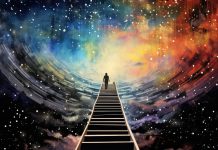The miracle of modern technology today is idealised by almost everyone. The way in which technology has placed the world at our feet, ensuring that we are at the centre of the universe even while lying on our couches, and that we find solutions simply by swiping our finger along a screen, has irredeemably conquered us.
Society as a whole will never willingly give up this newly-obtained comfort. It will only seek to exacerbate it. A direct consequence hereof is not only man’s isolation within society, but also his isolation from God.
Last year, The New York Times published an article on spending time in nature as the latest therapy doctors are endorsing to combat stress and improve general well-being. It seems that the number of resorts in the United States offering therapy sessions of Japanese inspiration, in nature, is increasing. Amitha Kalaichandran, doctor and journalist, has participated in one of these sessions.
The first step is sitting down in a circle, on the ground, in the grass. Here every participant must share a happy memory of their childhood. Then the group is taken by a “forest therapist” for a very slow, two-hour walk through the forest. During this walk, participants are encouraged to use all their senses to completely immerse themselves in the landscape and become aware of their surroundings. The walk ends with a tea ceremony, using tea made of pine needles which were gathered during the walk and infused in hot water.
Kiki, the guide, is one of 300 therapists accredited by the Association of Nature and Forest Therapy in the United States. There are already many hospitals in the U.S. which have doctors certified in nature therapy or which have initiated pilot-programs in collaboration with associations which offer such services. Books like Last Child in the Woods, by Richard Louv, or The Nature Fix, by Florence William, have become compulsory reading for those seeking to provide scientific support for the need to counteract the nature deficit most of us experience today. In the era of depression and generalised anxiety, it seems like the retreat to the cities, among the block of flats, in our own apartments where we connect to the outer world via the internet, is a more serious problem with more significant effects than we ever imagined it would be.
Have you been out today?
Studies on the impact that an exposure to nature has on man reveals surprising results. Most of these studies have been done in Japan and South Korea and seem to suggest that time spent in nature, especially in rich woods, may even lower blood pressure and cortisol levels, known as the stress hormone. The effects on one’s state of mind are even stronger if there is a spring or a lake around. According to research performed by the University of Utah and the University of Kansas, time spent in nature may improve attention span and creativity by up to 50%.
Other studies, however, have achieved mixed results. A transversal study carried out in South Korea did not find any change in blood pressure, and another systematic study in 2010 identified a positive change at the level of mood and energy, but with no significant effects on cortisol levels or blood pressure. Recently, Australian researchers have shown in yet another systematic study of specialised literature that the lack of qualitative, robust and controlled studies limit the conclusions that may be drawn on the influence nature therapy has on illness prevention. They do, however, admit that the role nature might play in human health is important enough to warrant rigorous study.
Nobody denies nature’s capacity to improve one’s disposition. When researchers from the University of Alabama wanted to see what connection there is between certain activities people usually do in parks and the emotional state that follows, they were surprised to see that what lifts the spirit after only 20 minutes of being in the park has nothing to do with any particular activity, but is a direct effect of being exposed to nature in general. In other words, those who spent 20 minutes on a bench reported the same mood improvement as those involved in various other activities.
The academic world has proposed different theories to explain the mechanisms through which nature can support human, emotional and physiological health, most of them being connected to physical activity, social integration and air quality. Some believe the biodiversity in green environments positively influences the intestinal microbiome and the microorganisms living on the human skin, thus boosting the immune system. Others believe that the phytoncides released by plants (antimicrobial substances) can reduce blood pressure, while others have found that the sounds of nature can reduce the activity of the sympathetic nervous system and increase the activity of the parasympathetic nervous system, which ultimately regulates the immune system, with long-term consequences for health. All these theories aside, there is another important mechanism through which nature affects us, but which is not often spoken of.
Where is God?
There is no debate on the fact that man is part of the environment which he influences and is influenced by. However, only certain environments can have the power to influence human spirituality. Nature works like a mirror, reflecting love and divine beauty and arouse positive feelings of amazement, reverence and adoration in humans. The beauty of these environments strikes a chord within the human soul which influences our gestures, words and the way we interact with each other. The truth is God is to be found everywhere. In such an environment, however, we need not make additional efforts to positively connect to divinity and to one another. But away from nature, we must make an earnest effort not to let ourselves be influenced by the sterile environment. This is the ultimate difference between nature and concrete.
In our post-industrial society, man has grown further away from the communicative power of creation. This dissociation is accentuated by the digital revolution, affecting us on two levels. First, it keeps us locked up in our homes, bars, cinemas and away from nature. Second, it creates an illusion of the power to control the environment and nature, by undermining both its destructive capacity and its creative one. The Bible often refers to nature to facilitate an understanding of who God is and what He has done for humans. However, for some Christians nowadays these references are only characteristics of the language Bible writers had to use to convey their message to an agrarian society. What possible relevance could noticing the seasons have today, other than helping us decide what to wear? Ambient temperature is adjusted through a thermostat, food is delivered without getting our nails dirty, and so forth. In the end, what part of our faith will we lose if the situation remains as it is?
Above all, we could lose the sense of God’s grandeur and glory, says Scott Martin, who works toward the conservation and development of green spaces in the United States. When we do not plant flowers, do not practice agriculture, do not notice a bird nesting, we lose the feeling of amazement towards something growing and coming alive. And we miss out on opportunities to feel grateful if we do not stop to observe the simplicity of a tree offering us shade and oxygen without us ever having done anything for this to happen. But, most importantly, we lose opportunities to enjoy. Jean Calvin said no blade of grass grows without God’s intention to delight us. Today, by his own will, man has stepped away from things meant to fill his life with joy.
We also lose our vital sense of orientation and healthy balance. When we are locked up in the house, with direct access to devices especially conceived for our individual needs, we have the impression that the world is at our feet and we are truly free to choose. Only when we enter a majestic forest where we have no internet connection do we get a reality check—we are puny, as puny as we have always been. The digital world helps us live the lie for which every one of us has wished at some point: to be the centre of the universe, with unlimited, unrestricted access to the heart’s desires. The natural world teaches us to live a truth no postmodern relativist desires, that of being unique in the eyes of a God who laid the world at our feet, but under certain conditions.



















